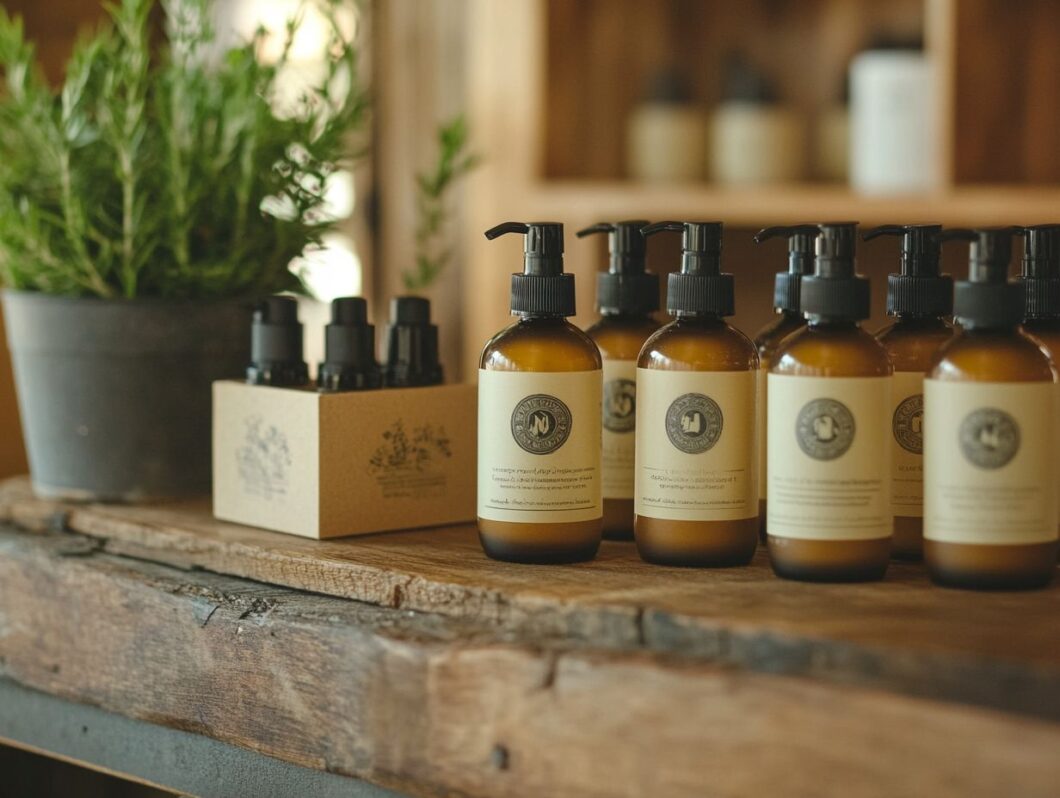Navigating the world of beauty products can indeed be overwhelming, particularly with the increasing popularity of organic options.
Understanding organic certifications is crucial, as they significantly influence the products I choose. This article will delve into the numerous benefits of organic beauty products, highlighting health and environmental advantages while also clarifying the various certifications available.
I will learn how to decode product labels, identify common harmful ingredients, and discover tips for spotting genuine organic claims. With this knowledge, I am prepared to make informed choices for my beauty routine.
Key Takeaways:
What are Organic Certifications?
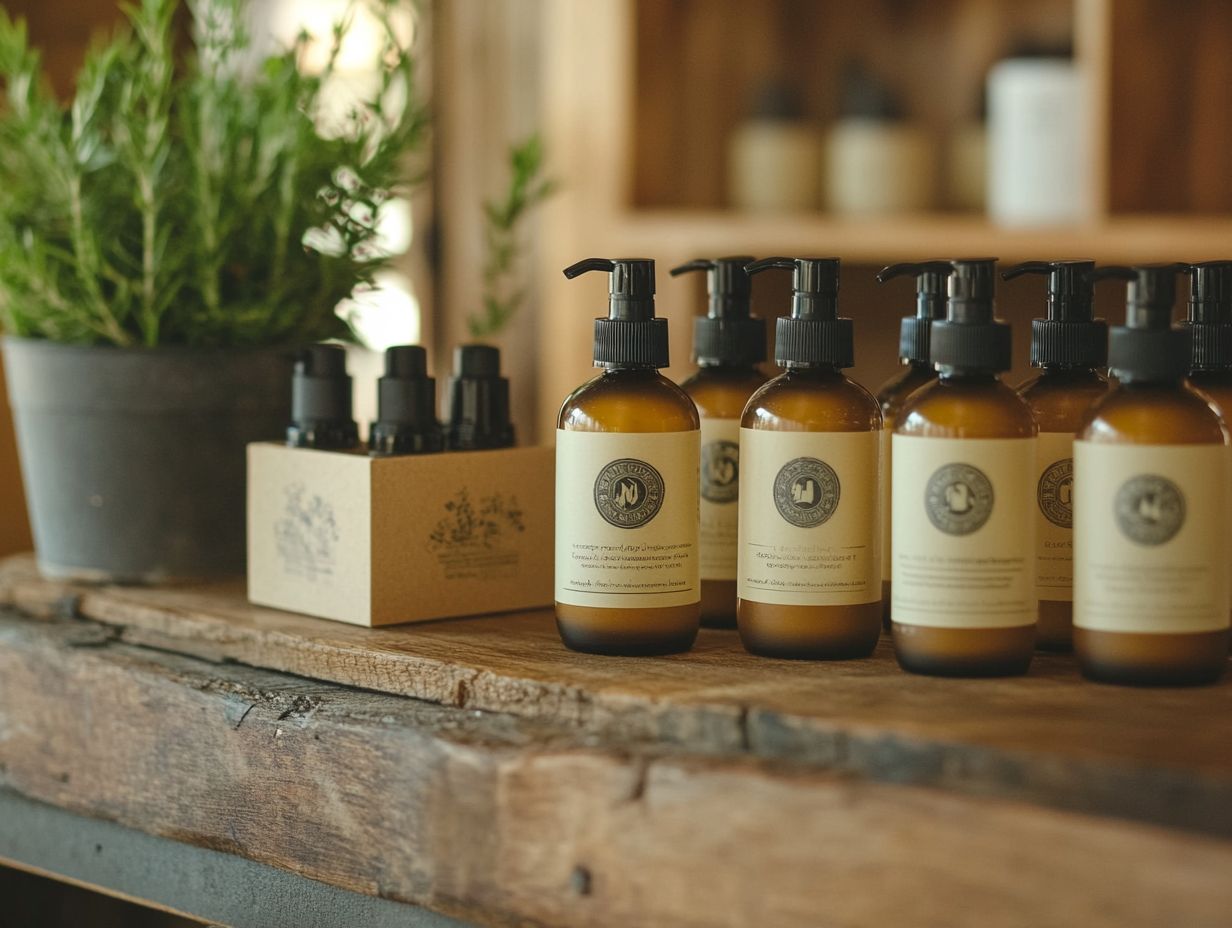
I recognize that organic certifications play a crucial role in the cosmetics industry by providing a structured framework that ensures products meet specific ethical and sustainable standards. Certifications such as USDA Organic, COSMOS, and NATRUE enable consumers to easily identify products that utilize organic ingredients, adhere to clean beauty standards, and promote environmental sustainability through eco-friendly production practices.
By gaining a deeper understanding of these organic certifications, I can enhance my trust in cosmetic brands and their commitment to health and sustainability.
These credentials not only assure me that I am purchasing safe and non-toxic alternatives but also reflect a company’s dedication to transparency. When I see these certifications, I feel more confident about my purchasing decisions, knowing that the products are made with responsibly sourced materials.
Moreover, certified products often encourage brands to adopt sustainable practices in cultivation and manufacturing, significantly reducing their environmental impact. As the market for organic cosmetics continues to expand, I find the importance of these certifications increasingly evident, as they foster meaningful dialogue between consumers and producers regarding ethical beauty.
Benefits of Using Organic Beauty Products
I find that utilizing organic beauty products provides numerous benefits, especially in terms of personal health and environmental sustainability, which makes them a preferred choice for conscious consumers.
By choosing natural cosmetics, I can enjoy formulations that are free from harmful chemicals, promoting better skin health and minimizing the risk of allergic reactions. Additionally, this choice supports ethical practices and waste reduction initiatives within the cosmetics industry, aligning with my values and commitment to sustainability.
Health and Environmental Benefits
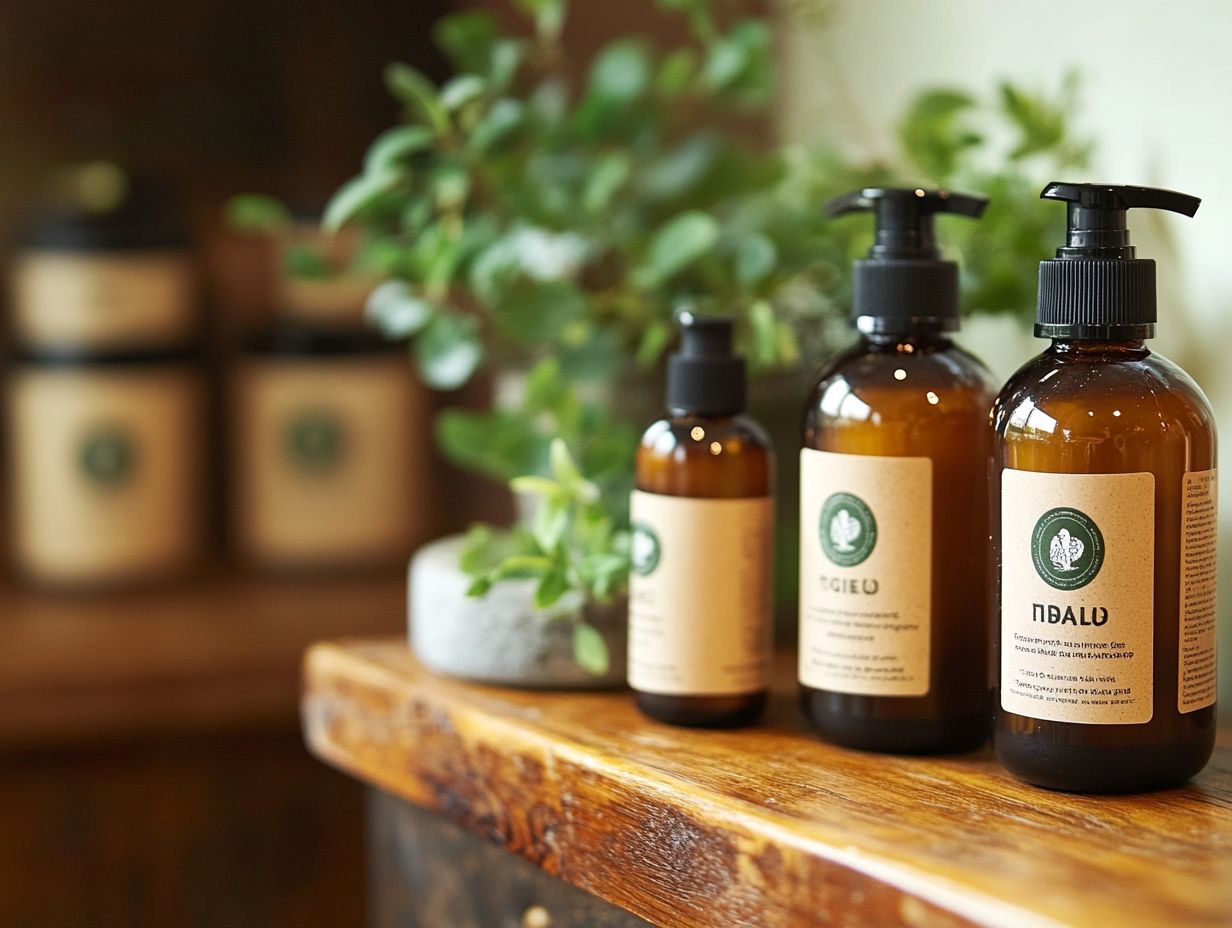
The health benefits of using organic beauty products are significant, as they reduce exposure to harmful chemicals and allergens, ultimately leading to improved skin health and overall well-being. I appreciate that organic ingredients support biodiversity by utilizing sustainable farming practices that protect the environment and promote ecological balance, positively impacting both my health and that of the planet.
By opting for organic options, I can significantly decrease my exposure to toxins commonly found in conventional beauty products, such as synthetic fragrances and preservatives. This reduction is essential not only for enhancing my skin vitality but also for fostering long-term health.
Furthermore, organic farming practices minimize water pollution by reducing chemical runoff, which protects aquatic ecosystems. These practices also encourage the preservation of local flora and fauna, vital for maintaining biodiversity.
I can feel confident in my choices, knowing they support sustainable agricultural methods that nourish my skin while also contributing to a healthier planet for future generations.
Types of Organic Certifications
I recognize that there are several types of organic certifications within the cosmetics industry, each aimed at ensuring products meet specific organic standards.
Notable certifications such as USDA Organic, COSMOS, and NATRUE provide consumers with the confidence that the products they select are formulated with organic ingredients and comply with guidelines that promote environmental sustainability and ethical practices.
Comparison of Different Certifications
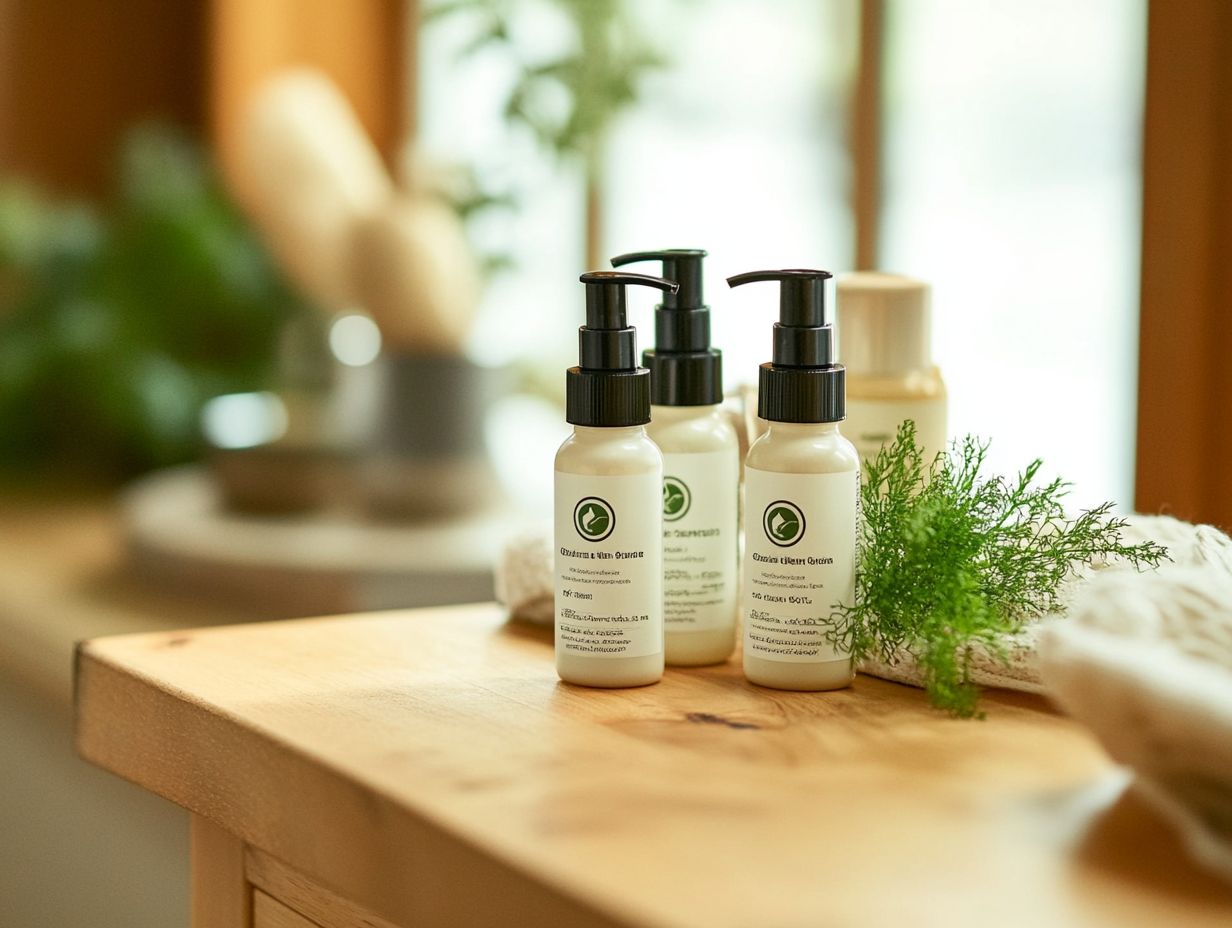
When I compare different organic certifications, I find it essential to consider the specific criteria and guidelines established by organizations such as USDA Organic, COSMOS, and NATRUE. Each certification adopts a unique approach to validating organic claims, which can significantly influence consumer trust and the perceived integrity of certified products within the cosmetics industry.
For example, USDA Organic primarily emphasizes agricultural practices and ingredient sourcing, ensuring that products contain at least 95% organic content. On the other hand, COSMOS offers a more comprehensive framework by evaluating the entire life cycle of a product, promoting sustainability in ingredient sourcing, and supporting eco-friendly practices.
NATRUE, in contrast, prioritizes natural ingredients and transparency in formulations, appealing to consumers who value minimal processing.
By understanding these distinctions, I can make informed choices and select beauty products that align with my ethical standards while also ensuring efficacy and safety.
Understanding Labeling and Ingredients
Understanding labeling and ingredients in organic beauty products is essential for me as a consumer seeking to make informed purchasing decisions.
Transparency in cosmetics labeling enables me to identify organic ingredients and recognize products that adhere to cosmetics regulations. This awareness is vital in helping me avoid harmful substances and misleading claims.
Deciphering Organic Product Labels
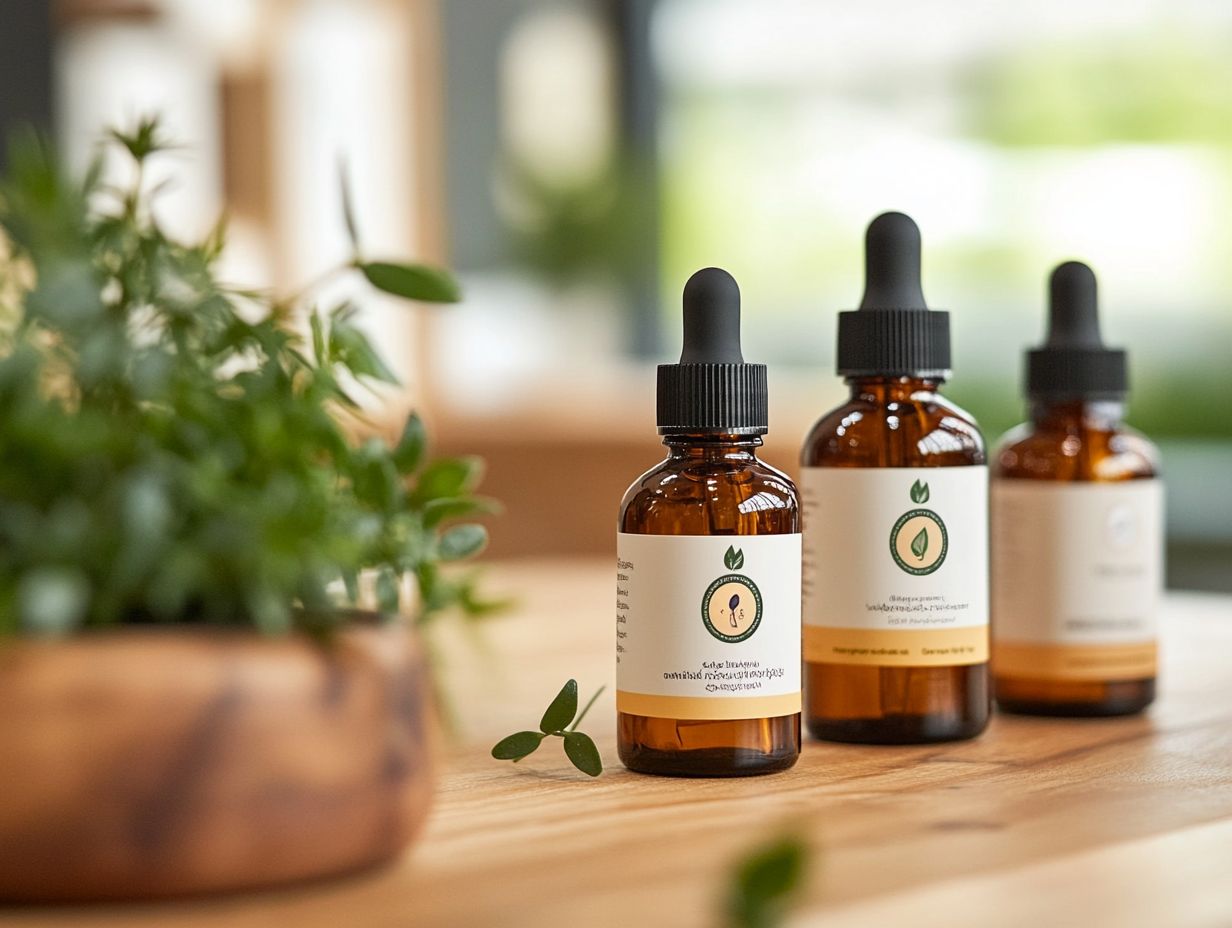
Deciphering organic product labels is crucial for me as I aim to purchase genuine organic beauty products. By understanding the labeling standards set by clean beauty certifications, I can ensure that the products I choose contain authentic organic ingredients and adhere to the principles of transparency in cosmetics.
Recognizing the differences between various certification logos, such as USDA Organic or COSMOS Organic, significantly impacts my purchasing decisions. These seals represent rigorous testing and a commitment to organic farming practices, which are essential for me as I consider potential chemical exposure.
Ingredient listings also provide valuable insights; I prioritize looking for recognizable, naturally derived components over synthetic alternatives. For example, an ingredient labeled as ‘certified organic aloe vera’ indicates a higher level of authenticity compared to simply ‘aloe vera.’
Understanding these nuances give the power tos me to make informed choices, ultimately enhancing my overall experience with organic beauty products.
Common Ingredients to Avoid
In the realm of clean beauty, I recognize the importance of being aware of common ingredients to avoid in order to maintain skin health and overall well-being. Many conventional cosmetics contain harmful substances such as parabens, sulfates, and synthetic fragrances, which can undermine consumer trust and impact health over time.
These ingredients may cause skin irritation, hormonal imbalances, and long-term health issues, highlighting the necessity for research and guidance on product safety. For instance, parabens, frequently used as preservatives, can mimic estrogen and potentially disrupt hormonal balance. Likewise, sulfates can strip natural oils, resulting in dryness and irritation, especially for those with sensitive skin.
As consumers become increasingly educated about these risks, I have observed a surge in demand for transparency in cosmetics. Identifying products that prioritize clean beauty often involves seeking certifications or labels that emphasize natural and organic ingredients.
By taking a proactive approach to examining ingredient lists, I give the power to myself to select safer options for my beauty routine.
How to Identify Genuine Organic Products
Identifying genuine organic products can be a challenging endeavor for consumers; however, I have found effective strategies to ensure the selection of authentic, certified items.
To recognize fake or misleading claims, it is essential for consumers to familiarize themselves with the characteristics of certified products, understand the relevant certifications, and carefully scrutinize ingredient lists for organic components.
Tips for Spotting Fake or Misleading Claims
Spotting fake or misleading claims in the cosmetics industry is essential for maintaining consumer trust and ensuring that I purchase quality organic products. By recognizing common tactics used in deceptive marketing, I can navigate the cosmetics landscape more effectively and make informed choices about the products I select.
Specifically, I can refine my discernment by closely examining the marketing language often used, especially paying attention to vague terms like “natural” or “pure” that lack clear definitions. I also check for credible certifications from reputable organizations, which serve as a seal of approval, indicating that the product meets specific organic standards.
Additionally, conducting thorough research on brands—exploring their history, transparency, and customer reviews—proves beneficial.
By actively engaging in these practices, I contribute to a healthier cosmetics market, helping to foster an industry that prioritizes integrity and trustworthiness.


